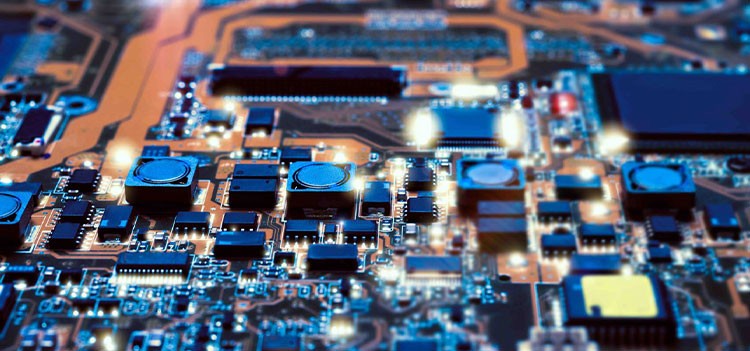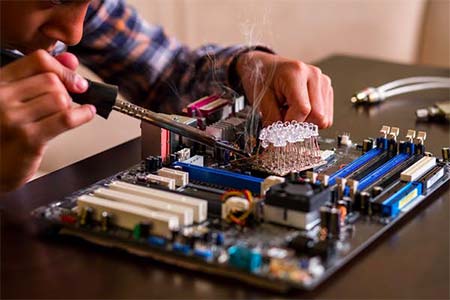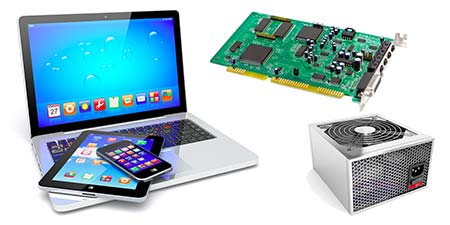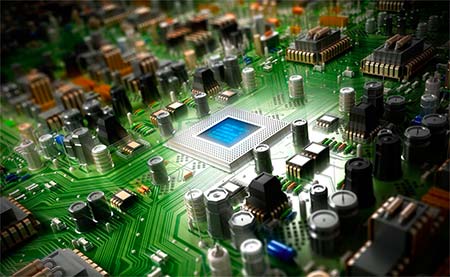M.Sc Electronics
M.Sc Electronics is one of the most popular and also one of the sophisticated branches of science. The field has gained a lot of popularity in recent years with new technologies being developed and coming in place. The M.Sc Electronics students are hired in various job roles across different areas especially in the hardware industry.
In this article we will discuss about the new and trending careers in the field of M.Sc Electronics. They are as follows:
1. Aerospace Engineer
As an Aerospace engineer one will be working with cutting edge technology and in many international companies that are related to aircraft and avionics. They are responsible to develop new and innovative designs in aviation electronics or avionics.
Role of an Aerospace Engineer
As an aerospace engineer one will be doing research, design, develop, maintain and test the performance of:
- Civil and military aircraft
- Missiles
- Satellites
- Space vehicles
- Weapons systems
- Advanced Avionics
They work in carrying out different components that make up the aircraft and systems. As an aerospace one is responsible to improve flight safety, fuel efficiency, speed and weight as well as reducing system costs and using developing technologies to meet the customer needs. He/she is also required to develop new electronic chipsets that are economical and efficient.
Responsibilities of an Aerospace Engineer
As an aerospace engineer, one is needed to:
- Apply principles of science and technology to create aircraft components and support equipment
- Research and develop design specifications and use computer aided design (CAD) software to create plans and airframe designs
- Supervise the assembly of airframes and the installation of engines, instruments and other equipment
- Take part in flight test programmes to check the avionics and electronics on board of an aircraft
- Resolve issues that arise during the design development and testing processes
- Maintain aircraft to full operation including regular inspections, maintenance, repairs and servicing related to aviation electronics
- Design new electronic modules and for advanced avionics
- Measure and improve safety features or minimise fuel consumption and pollution
Salary & Emoluments
- A fresh M.Sc Electronics student will earn a salary of 5 lakhs per annum as an aerospace engineer
- An experienced M.Sc Electronics professional will be earning around 8 to 10 lakhs per annum
2. Control and Instrumentation Engineer
As a control and instrumentation engineer one is responsible to design, develop, install and maintain an equipment that is used to monitor and control engineering systems machinery and processes.
Role of a Control & Instrumentation Engineer
A Control & Instrumentation Engineer’s job is to make sure that all the systems and processes of an equipment are operating effectively, efficiently and safely at all times. As a Control and Instrumentation Engineer one is required to have a thorough understanding of the operational processes of an organisation and also work in a multi-disciplinary area.
Responsibilities of a Control & Instrumentation Engineer
As a Control & Instrumentation Engineer one is required to:
- Design and develop new control systems and their electronics
- Testing, maintaining and modifying existing systems
- Analysing data and presenting findings in writer reports
- Managing operations in an organisation
- Work collaboratively with design engineers, operation engineers, purchases and other internal staff
- Project management within cost and time constrained environments
- Develop and design new control systems that are economical and efficient
Salary and Emoluments
- An average fresh M.Sc Electronics graduate will earn around 5 lakhs to 8 lakhs per annum as a control and instrumentation engineer
- The experienced electronics graduates will be earning around 8 to 10 lakhs per annum
3. Broadcast Engineer
A broadcast engineer will always work behind the large screen. He/she is responsible to take care of all the broadcasts and also should ensure that the quality is not compromised due to technical glitches.
Role of a Broadcast Engineer
As a Broadcast engineer one will work with hardware and broadcast systems that are used across a relay media like television, radio and news media. As a broadcast engineer one has to make sure that the programmes are broadcasted on time at the highest quality.
Responsibilities of a Broadcast Engineer
As a broadcast engineer one is needed to:
- Maintain specialised equipment for video production, broadcast and satellite transmission and interactive media
- Setting up and monitoring audio-visual links between units in different locations
- Installing and testing new facilities and equipment
- Setting up and operating editing facilities in post-production suites
- Minimising loss of service when equipment fails by quickly identifying and implementing alternative methods
- Designing and installing custom audio-visual circuits
Salary & Emoluments
- The salary of a fresh M.Sc Electronics students ranges from around 4 lakhs to 6 lakhs per annum as a Broadcast Engineer
- The experienced M.Sc Professionals will be earning around 7 lakhs to 9 lakhs per annum
4. Electronics Engineer
As an electronics engineer one will be working in various areas like telecommunication, manufacturing, aerospace or robotics, etc.
Role of an Electronics Engineer
The electronics engineer is required to design, develop and test components, devices, systems or equipment that use electricity as part of their source of power. The components include capacitors, diodes, resistors and transistors, etc. As an electronics engineer one will be working in different areas like:
- Acoustics
- Defence
- Medical instruments
- Mobile phones
- Radio and satellite communication
- Robotics
Responsibilities of an Electronics Engineer
The electronics engineer is needed to:
- Discuss proposals with clients
- Work with colleagues to design new systems, circuits and devices or develop existing technology
- Test theoretical design for electronic chipsets
- Write specifications and technical reports
- Follow defined development processes
- Systematically improve the detailed design of a piece of electronic equipment
- Ensure that a product will work with devices developed by others
- Create user friendly interfaces
- Ensure that the electronic devices work efficiently and produce excellent results
Salary and Emoluments
- A fresh M.Sc Electronics graduate will earn around 4 to 6 lakhs per annum as an electronics engineer
- The skilled and experienced M.Sc Electronics professionals will be earning around 8 to 10 lakhs per annum
Conclusion
The M.Sc Electronics has been considered as a most sophisticated and popular field of science by many students of India and abroad. The technology advancements have created more scope and room for M.Sc Electronics students in the last decade. New inventions and discoveries have created more and more opportunities for M.Sc Electronics students. The students who have the urge to innovate and design new devices and instruments can join M.Sc Electronics course and land in well-paying jobs at global organisations.





